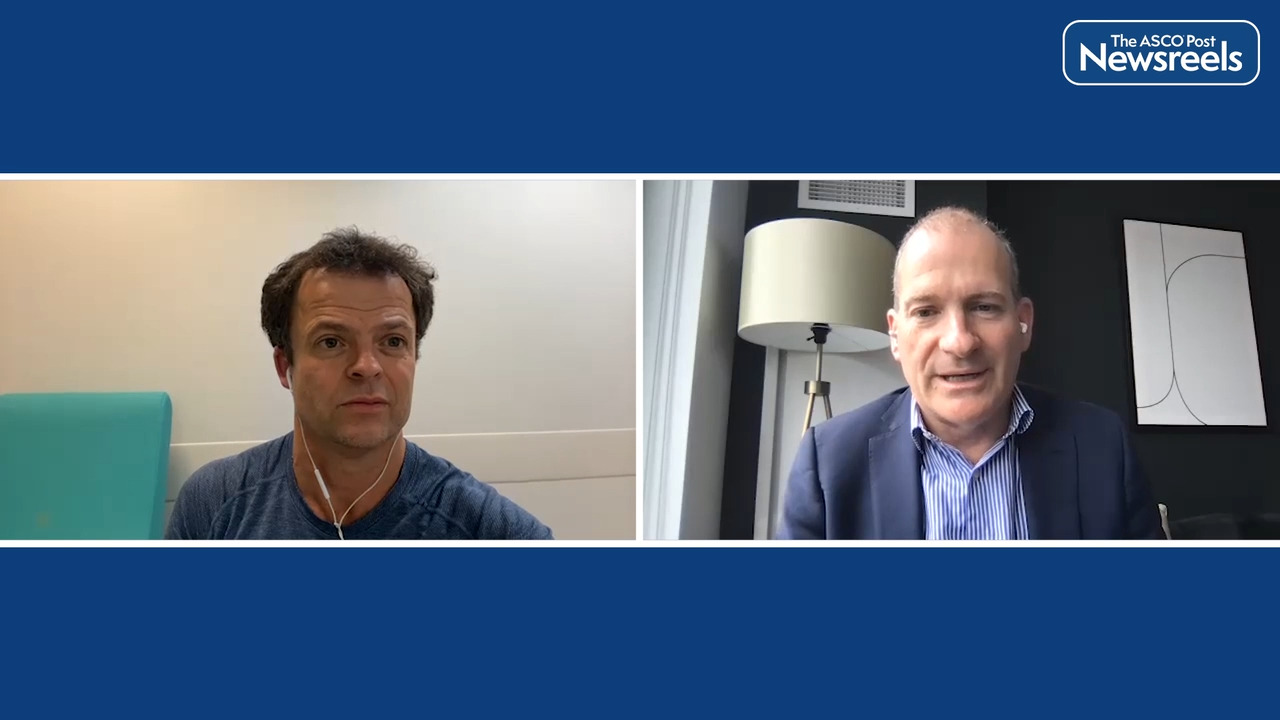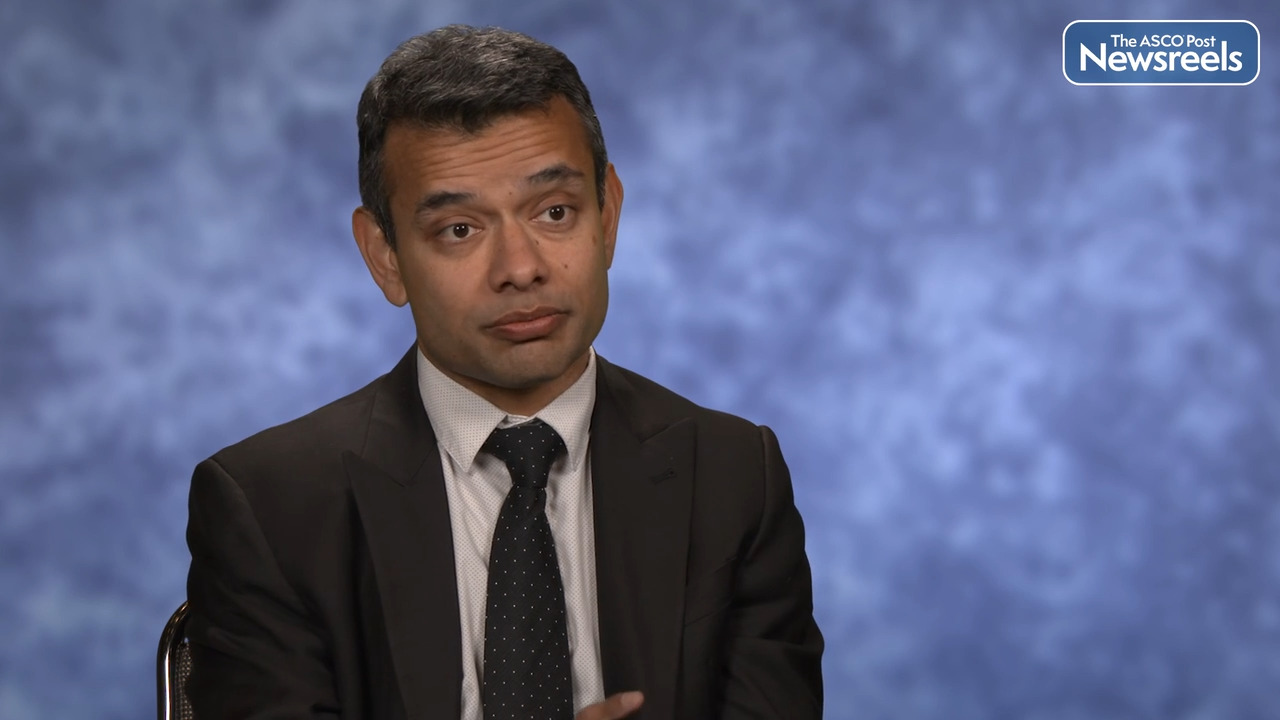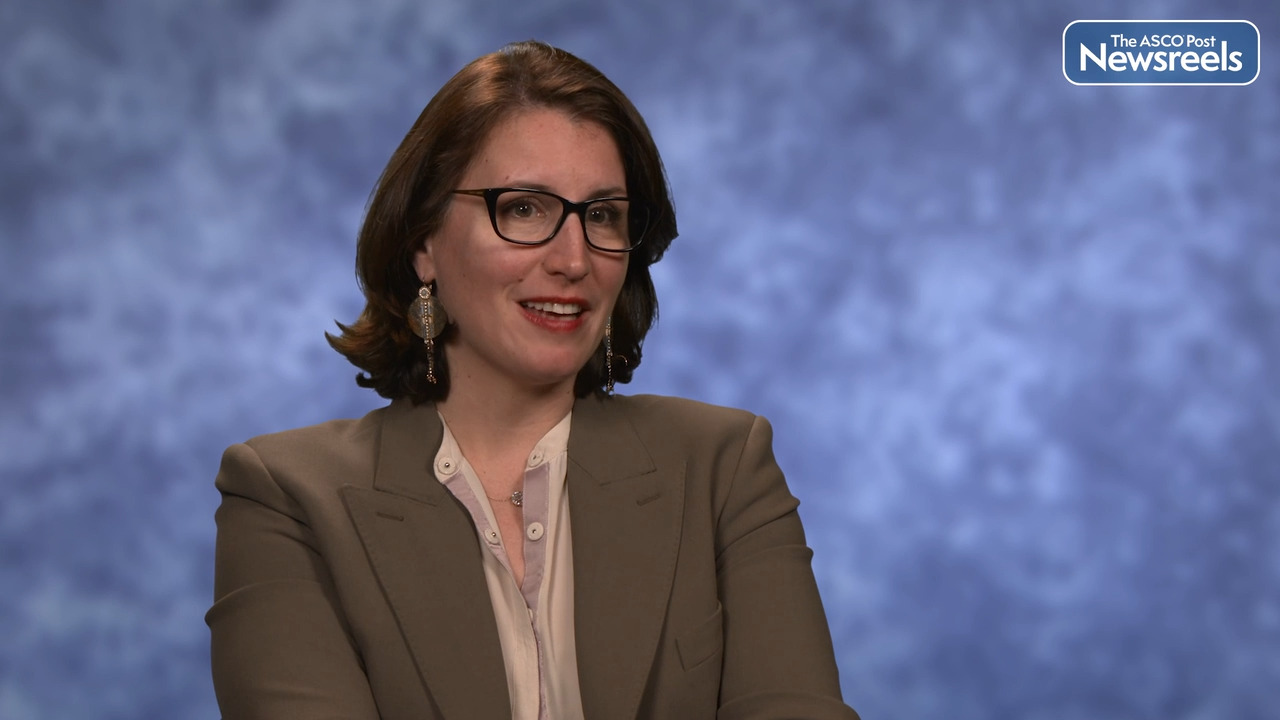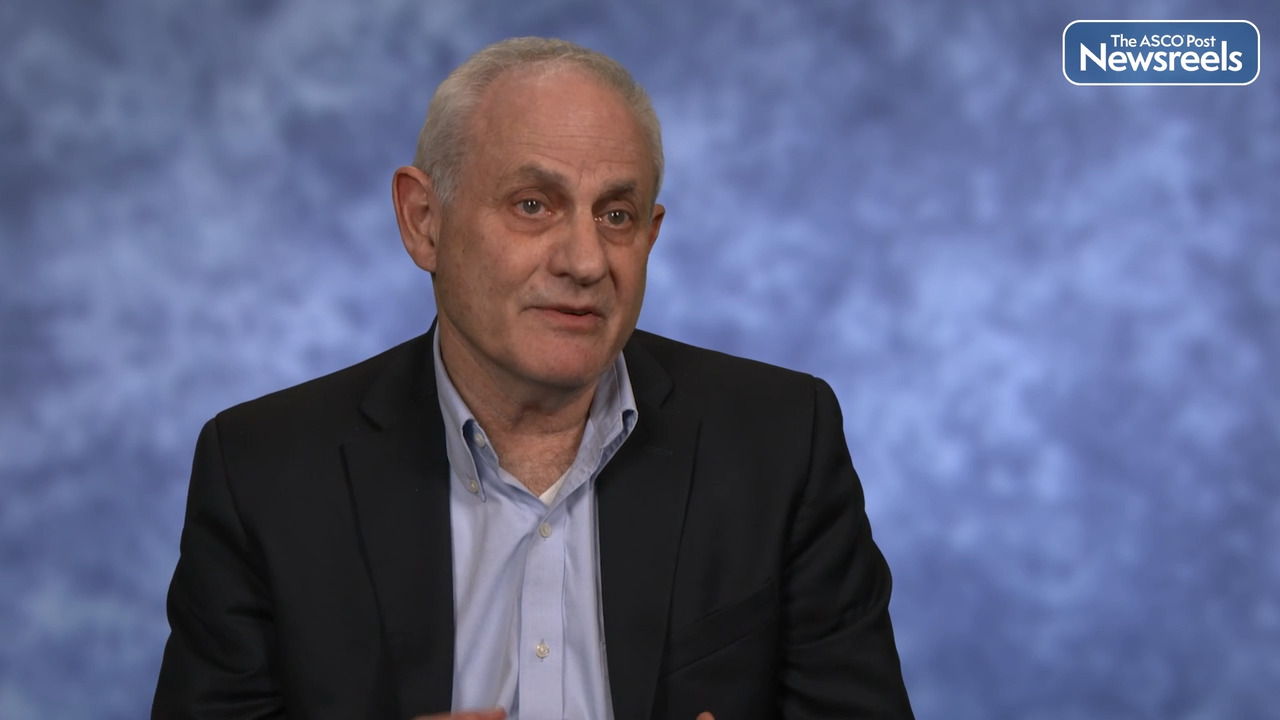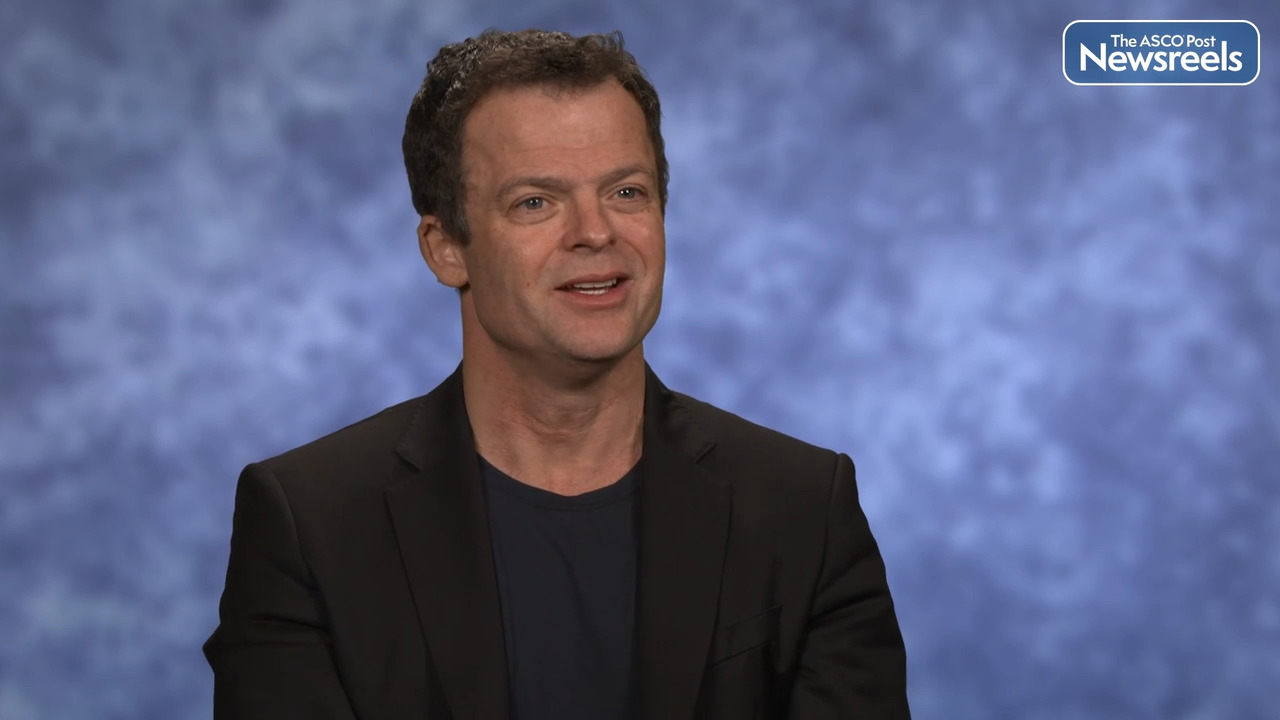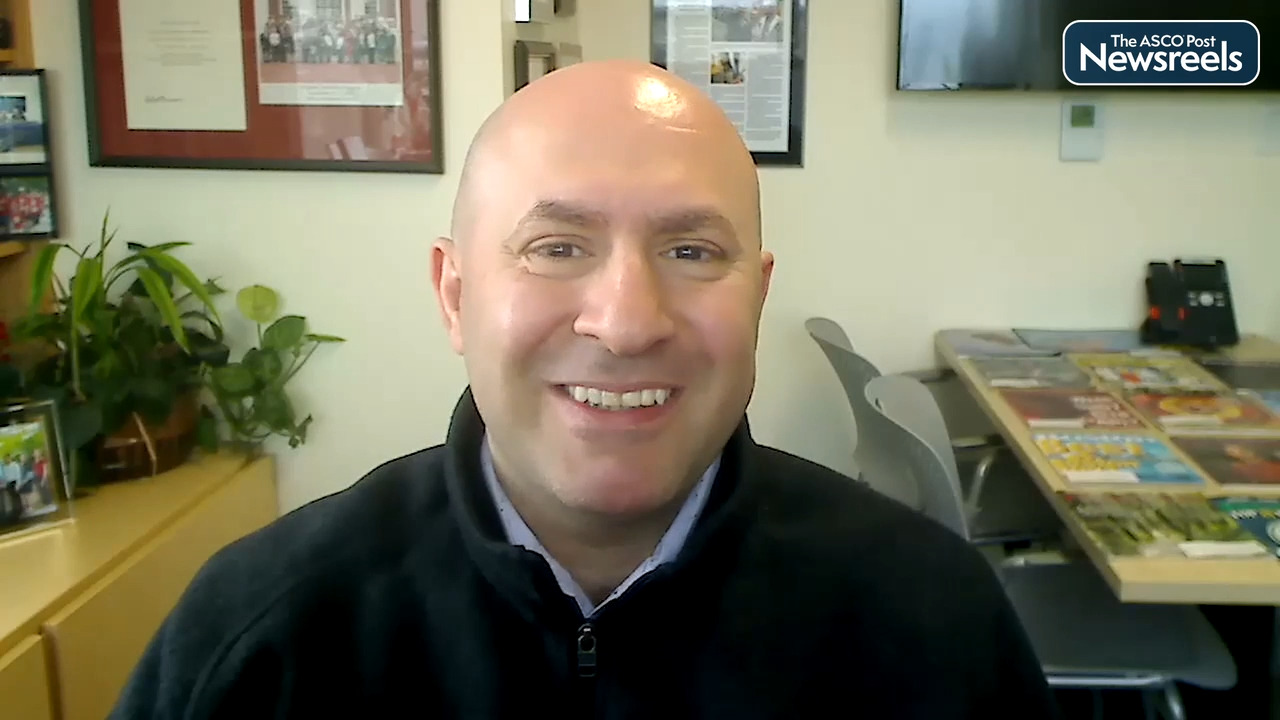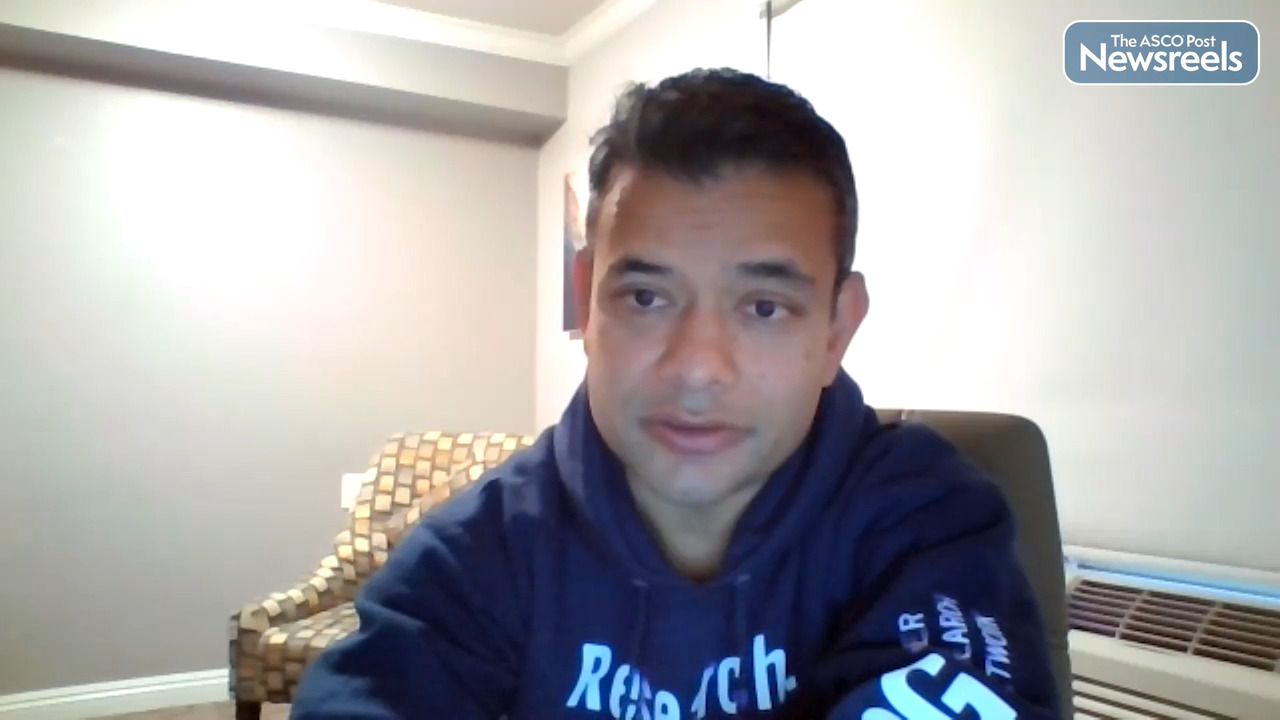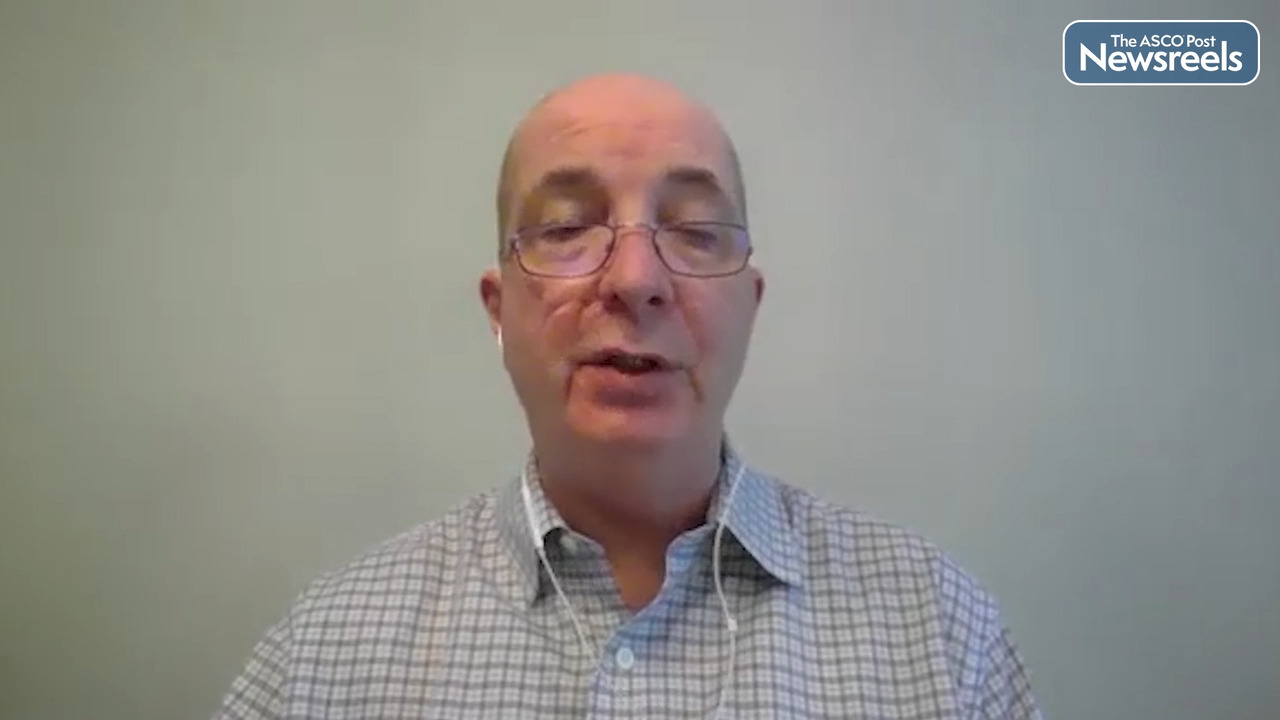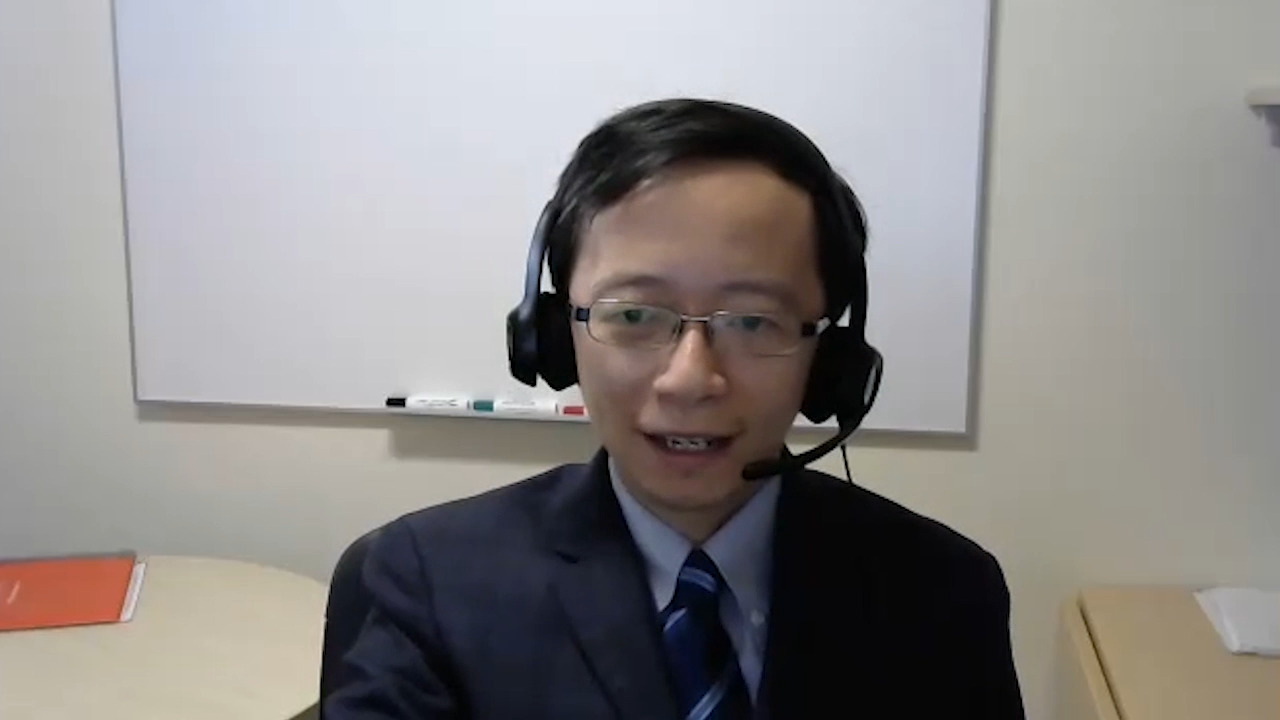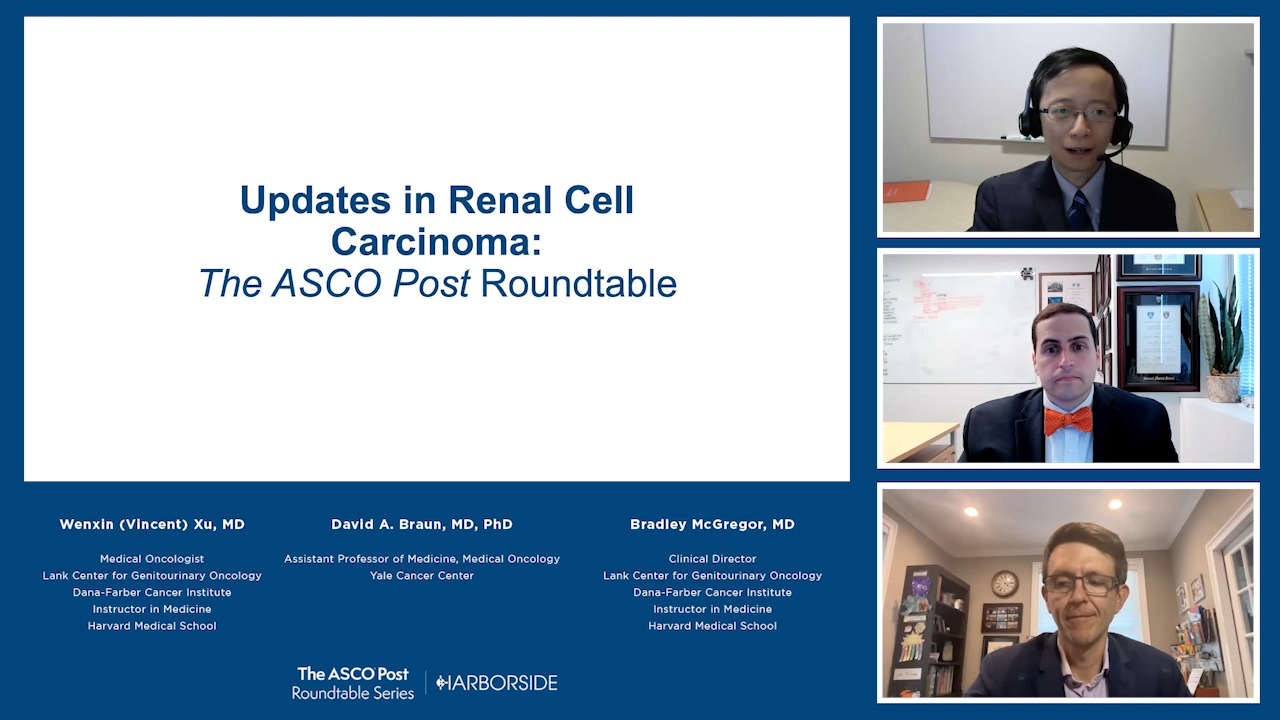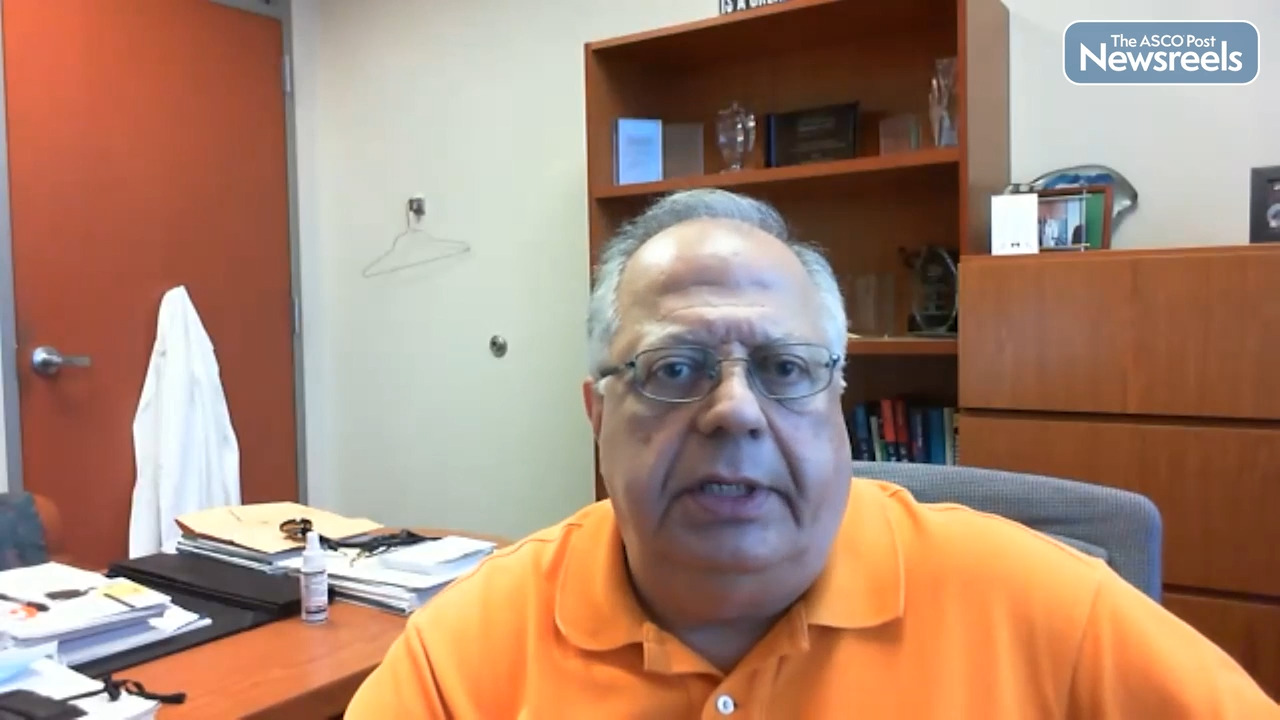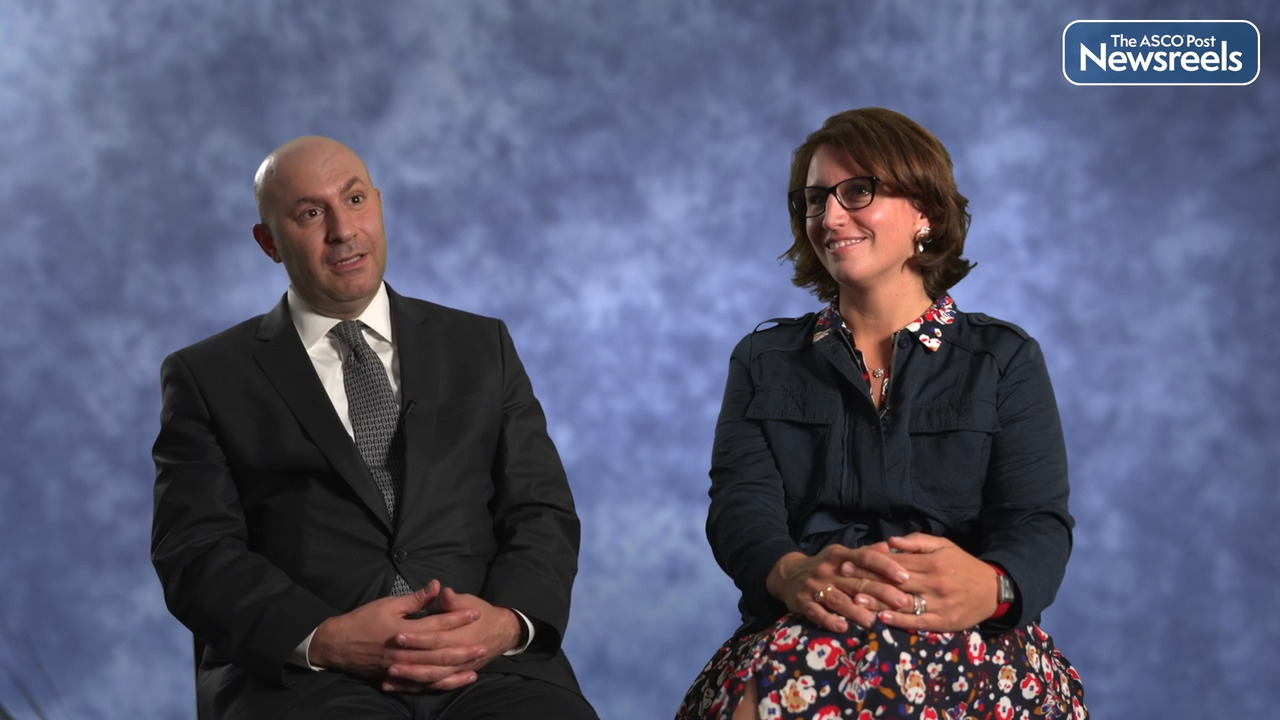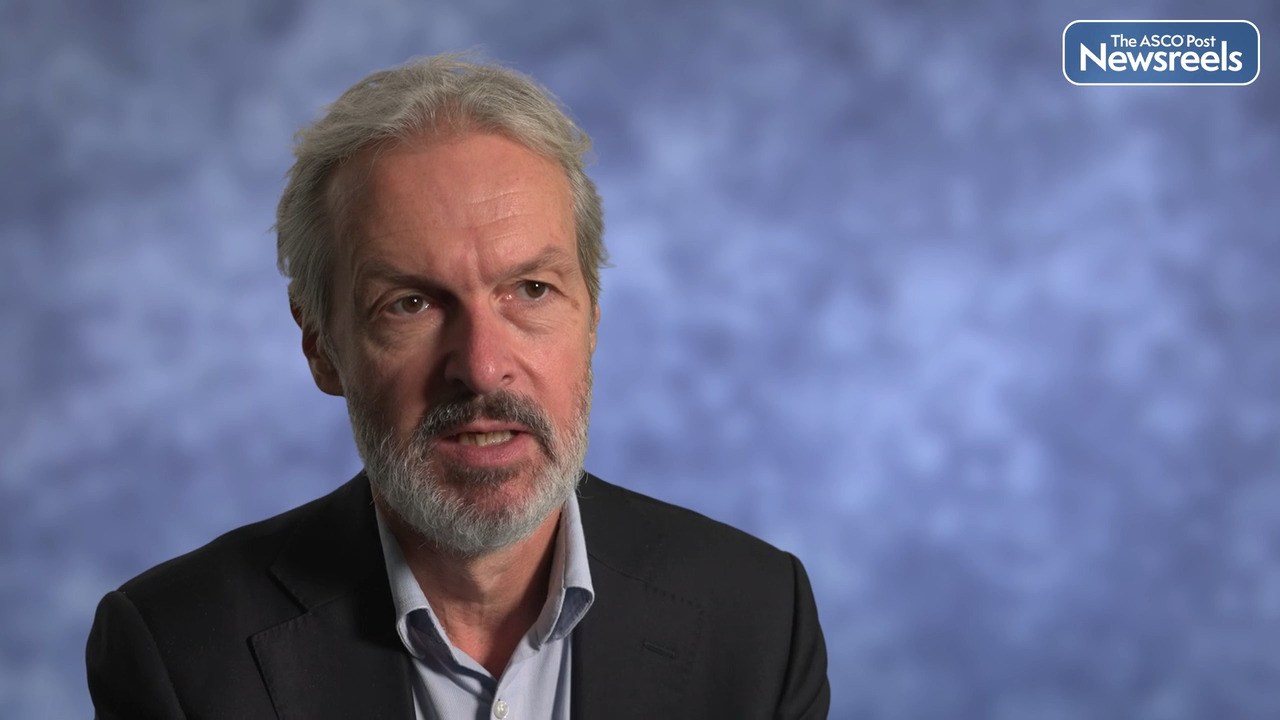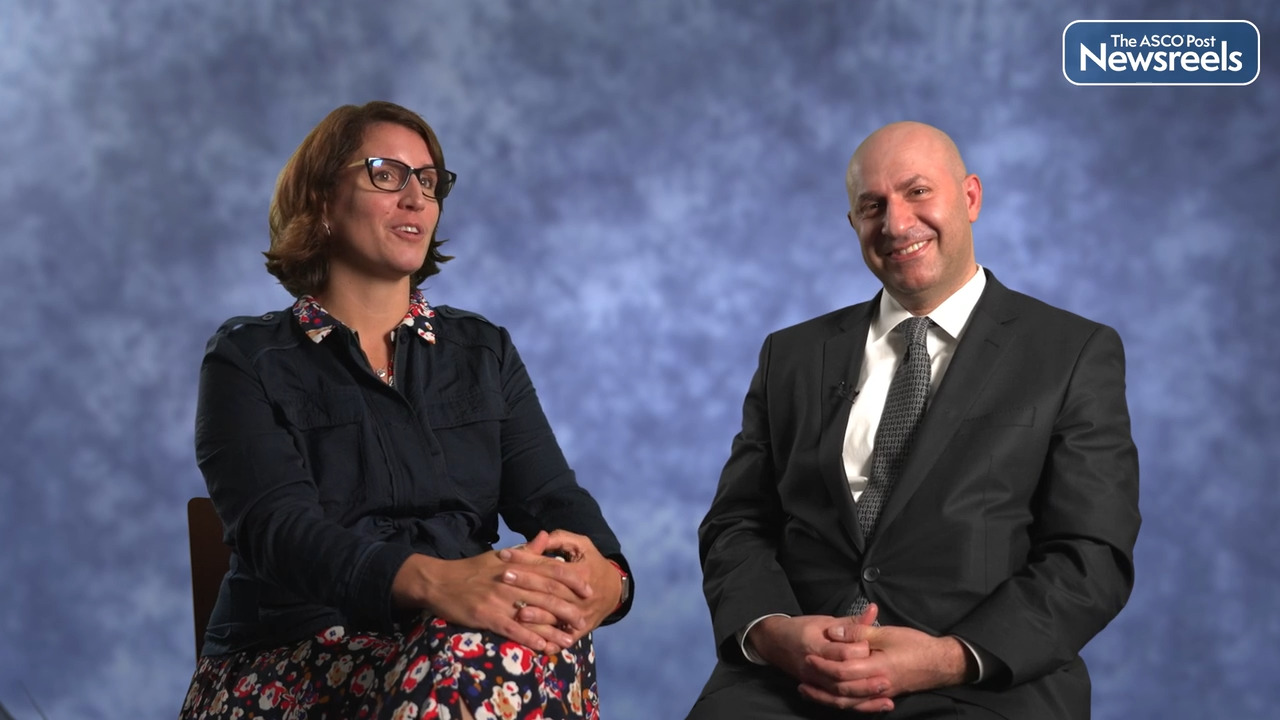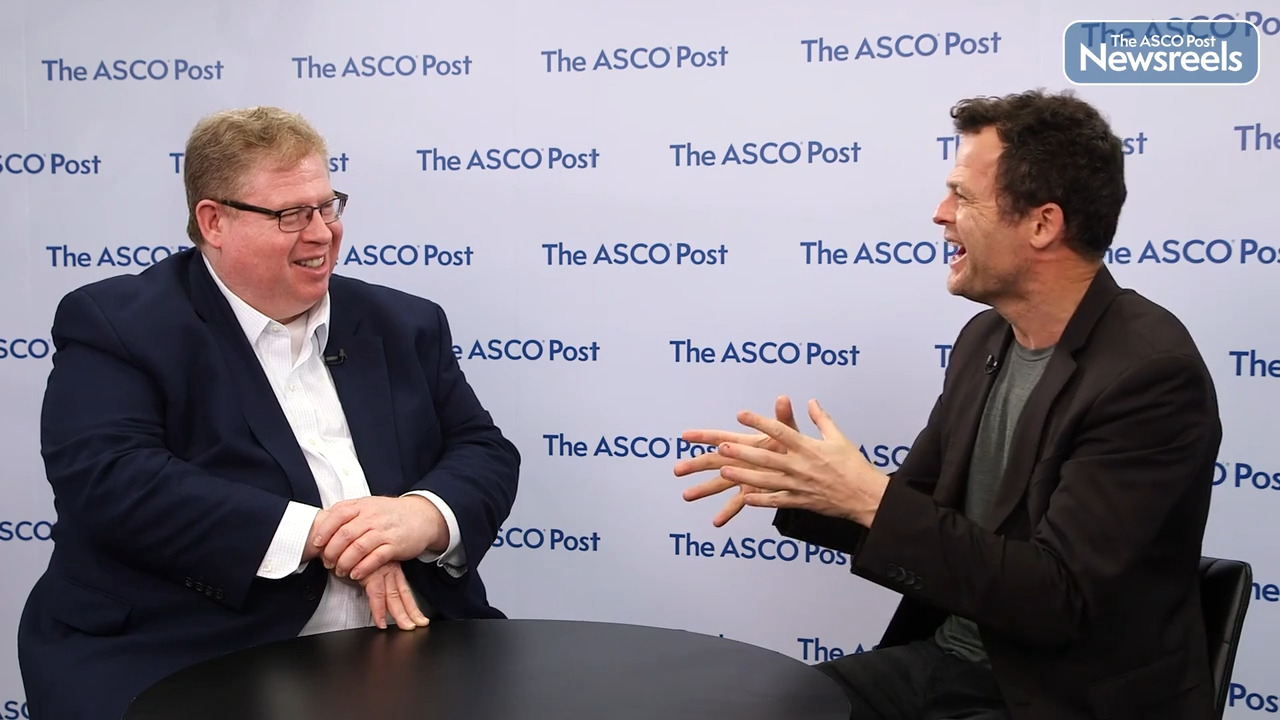Anti–PD-L1 Combination vs Sunitinib in Metastatic Renal Cell Carcinoma
In a meta-analysis reported in a research letter in JAMA Network Open, Maiorano et al found that first-line anti–PD-L1 treatment combinations did not significantly improve overall survival vs sunitinib in patients with metastatic renal cell carcinoma. A progression-free survival benefit was...
Cabozantinib in Combination With Nivolumab and Ipilimumab May Slow Progression of Advanced Renal Cell Carcinoma
The targeted kinase inhibitor cabozantinib plus a two-drug immunotherapy combination of nivolumab and ipilimumab may be capable of slowing cancer progression in patients with advanced renal cell carcinoma who received no prior lines of therapy, according to a study published by Choueiri et al in...
Study Explores Impact of Radiation Therapy on Immune Cells and Tumor Cells in Renal Cell Carcinoma
Researchers may have shed light on how radiation therapy impacts immune cells and tumor cells in renal cell carcinoma, according to a novel study published by Chow et al in the Journal for ImmunoTherapy of Cancer. The new findings may provide key information for planning treatment regimens that...
Patients With Brain Metastases From Renal Cell Carcinoma May Have Distinct Immunosuppressive Tumor Microenvironment
Researchers have created the largest single-cell atlas of renal cell carcinoma brain metastases, with matched primary and extracranial metastases, which has potentially enabled them to discover key biological mechanisms contributing to an immunosuppressive tumor microenvironment in the brain...
Novel CAR T-Cell Therapy Under Study in Metastatic Clear Cell Renal Cell Carcinoma
Treatment with the allogeneic chimeric antigen receptor (CAR) T-cell therapy ALLO-316 resulted in encouraging response rates and disease control rates for patients with metastatic clear cell renal cell carcinoma who did not respond to prior therapy, according to new findings presented by Srour et...
Belzutifan Plus Cabozantinib in Advanced Clear Cell Renal Cell Carcinoma Previously Treated With PD-1 or PD-L1 Inhibitors
In a U.S. phase II trial reported in The Lancet Oncology, Toni K. Choueiri, MD, and colleagues found that the combination of the hypoxia-inducible factor 2α inhibitor belzutifan and the VEGFR kinase inhibitor cabozantinib showed promising activity in patients with advanced clear cell renal cell...
Researchers Identify Potential Biomarkers of Response to Immunotherapy in Patients With Renal Cell Carcinoma
Researchers have revealed that the number of tumor-infiltrating lymphocytes, the state of necrosis, and mutations to the tumor-suppressor gene PBRM1 form a biomarker signature that may predict how patients with renal cell carcinoma will respond to immunotherapy, according to a novel study published ...
Effect of Smoking Cessation After Diagnosis of Renal Cell Carcinoma on Disease Progression and Survival Outcomes
In a Russian single-institution prospective cohort study reported in the Journal of Clinical Oncology, Sheikh et al found that quitting smoking after a diagnosis of renal cell carcinoma (RCC) was associated with improved disease progression and survival outcomes among patients. Study Details The...
Thomas Powles, MD, PhD, and Christopher Sweeney, MBBS, on RCC: Expert Review of Two Key Studies on Atezolizumab, Nivolumab, and Ipilimumab
Thomas Powles, MD, PhD, of Barts Health NHS Trust, Queen Mary University of London, and Christopher Sweeney, MBBS, of Dana-Farber Cancer Institute, discuss two important phase III studies on renal cell cancer (RCC) presented at ESMO 2022: IMmotion010, which examined the efficacy and safety of atezolizumab vs placebo as adjuvant therapy in patients with RCC at increased risk of recurrence after nephrectomy; and CheckMate 914, which compared nivolumab monotherapy or nivolumab combined with ipilimumab vs placebo in patients with localized disease who underwent radical or partial nephrectomy and who are at high risk of relapse. (Abstract LBA4 & LBA66).
Extended Follow-up Supports First-Line Use of Nivolumab Plus Cabozantinib in Advanced Renal Cell Carcinoma
The 3-year follow-up of the phase III CheckMate 9ER trial demonstrates superior outcomes with the combination of nivolumab plus cabozantinib vs the former standard-of-care sunitinib as first-line treatment of advanced or metastatic renal cell carcinoma.1 These benefits were achieved with the...
First-Line Lenvatinib/Pembrolizumab vs Sunitinib in Advanced Renal Cell Carcinoma: Extended Follow-up of the CLEAR Trial
As reported in The Lancet Oncology by Toni K. Choueiri, MD, and colleagues, extended follow-up of the phase III CLEAR trial has shown maintained progression-free and overall survival benefits with first-line lenvatinib plus pembrolizumab vs sunitinib in patients with advanced clear cell renal cell...
Savolitinib and Durvalumab in Metastatic Papillary Renal Cancer
In the phase II CALYPSO study reported in the Journal of Clinical Oncology, Suárez et al found that the combination of the MET inhibitor savolitinib and the PD-L1 inhibitor durvalumab did not reach the confirmed response rate endpoint in patients with metastatic papillary renal cancer but showed...
Updates From City of Hope on Renal Cell, Prostate, and Urothelial Cancers
Sumanta K. Pal, MD, introduces his City of Hope colleagues, Hedyeh Ebrahimi, MD, MPH, who discusses the prevalence of dietary modification and supplement use in patients with metastatic renal cell carcinoma, and Daniela Castro, MSc, who discusses expanding eligibility criteria in kidney, prostate, and urothelial cancer trials to more accurately reflect the real-world population and reducing exclusion criteria. (Abstract 662, 612, 34, 453)
Laurence Albiges, MD, PhD, on Renal Cell Carcinoma: New Phase II Data on Cabozantinib and Checkpoint Inhibitor Therapy
Laurence Albiges, MD, PhD, of France’s Gustave Roussy Cancer Centre, discusses interim results from the CaboPoint study, which evaluated cabozantinib as second-line treatment in patients with unresectable, locally advanced or metastatic renal cell carcinoma with a clear cell component. Disease in the study participants had progressed after prior treatment with ipilimumab and nivolumab in combination or combined with VEGF-targeted therapy. (Abstract 606).
Michael B. Atkins, MD, on Renal Cell Carcinoma: Phase II Findings on Nivolumab and Ipilimumab
Michael B. Atkins, MD, of Georgetown Lombardi Comprehensive Cancer Center, discusses treatment-free survival outcomes from the HCRN GU16-260-Cohort A study of patients with previously untreated advanced clear cell renal cell carcinoma who received nivolumab and salvage nivolumab plus ipilimumab. The regimen appears to result in substantial treatment-free survival with few treatment-related adverse events. (Abstract 604).
Adjuvant Nivolumab/Ipilimumab vs Placebo in Localized Renal Cell Carcinoma
As reported in The Lancet by Robert J. Motzer, MD, and colleagues, part A of the phase III CheckMate 914 trial has shown no improvement in disease-free survival with adjuvant nivolumab/ipilimumab vs placebo in resected localized clear cell renal cell carcinoma. Part B of the trial is evaluating...
Thomas Powles, MD, PhD, on Renal Cell Carcinoma: Phase III Results on Cabozantinib, Nivolumab, and Ipilimumab
Thomas Powles, MD, PhD, of Barts Health NHS Trust, Queen Mary University of London, discusses new data from the COSMIC-313 study of patients with advanced renal cell carcinoma of IMDC (International Metastatic RCC Database Consortium) intermediate or poor risk. Those who received cabozantinib instead of placebo with nivolumab and ipilimumab as first-line treatment seemed to experience improved progression-free survival. A subgroup analysis suggested the benefit was primarily in patients with an intermediate risk. Follow-up for overall survival is ongoing. (Abstract 605).
First-Line Tyrosine Kinase Inhibitor Therapy for Advanced Clear Cell Renal Cell Carcinoma: Temporary Treatment Cessation vs Continuation
As reported in The Lancet Oncology by Brown et al, the phase II/III STAR trial showed that noninferiority in overall survival and quality-adjusted life-years (QALYs) could not be concluded for temporary treatment cessation vs continuous treatment with first-line tyrosine kinase inhibitor therapy in ...
Toni K. Choueiri, MD, on Renal Cell Carcinoma: Potential Predictive Biomarkers of Treatment Efficacy
Toni K. Choueiri, MD, of Dana-Farber Cancer Institute, discusses a biomarker analysis from the phase III CheckMate 9ER trial of nivolumab plus cabozantinib vs sunitinib for the treatment of patients with advanced renal cell carcinoma. The ongoing study aims to identify a predictive biomarker that may potentially guide therapeutic choices. (Abstract 608).
Long-Term Outcomes Among Survivors of Wilms Tumor
In an analysis from the Childhood Cancer Survivor Study (CCSS) reported in the Journal of Clinical Oncology, Weil et al found that survivors of unilateral Wilms tumor were at an increased risk for severe chronic health conditions. Study Details The study involved 2,008 5-year survivors diagnosed...
Study Examines Genitourinary Cancer Trends, Disparities in the United States
New findings revealed that the highest mortality rates for prostate cancer among White male patients were found in the Western United States—including California—despite low incidence rates, according to a new study published by Schafer et al in European Urology. However, when compared with White...
Sumanta Pal, MD, on Renal Cell Carcinoma: CRISPR-Engineered CAR T Cells in Advanced Disease
Sumanta Pal, MD, of the City of Hope Comprehensive Cancer Center, discusses phase I results from the COBALT-RCC study, a first-in-human clinical trial exploring CD70 CAR T-cell therapy in patients with clear cell renal cell carcinoma. The agent appeared to show an excellent safety profile with no unexpected toxicities and antitumor activity. One durable complete response is the first to be achieved with allogeneic CAR T-cell therapy in patients with relapsed or refractory solid tumors, offering proof of concept for further exploration of CD70-targeted CAR T cells in renal cell and other CD70-positive malignancies (Abstract 558).
5-Year Outcomes With Stereotactic Ablative Body Radiotherapy for Primary Renal Cell Carcinoma
In an individual patient meta-analysis reported in The Lancet Oncology, Shankar Siva, PhD, and colleagues found that patients receiving stereotactic ablative body radiotherapy (SABR) for primary localized renal cell carcinoma had long-term outcomes indicating that the treatment is safe and...
Prevalence of Tumor Thrombus at RCC Diagnosis and Risk of Venous Thromboembolism
In a Dutch single-institution retrospective cohort study reported in JACC: CardioOncology, Kaptein et al identified the prevalence of venous tumor thrombus at diagnosis in patients with renal cell carcinoma (RCC) and the associated risk of venous thromboembolism. Study Details The study included...
Robert J. Motzer, MD, on Renal Cell Carcinoma: New Results With Nivolumab and Ipilimumab
Robert J. Motzer, MD, of Memorial Sloan Kettering Cancer Center, discusses phase III results of the CheckMate 914 trial, which explored the efficacy of adjuvant nivolumab plus ipilimumab vs placebo in the treatment of patients with localized renal cell carcinoma who are at high risk of relapse after nephrectomy (Abstract LBA4).
Negative Phase III Trials May Dampen Enthusiasm for Immunotherapy in the Adjuvant Setting in Kidney Cancer
Three negative phase III trials presented at the European Society for Medical Oncology (ESMO) Congress 2022 may dampen enthusiasm for immunotherapy as adjuvant therapy for renal cell carcinoma (RCC). None of the three trials—CheckMate 914, IMmotion010, and PROSPER—met its primary endpoint.1-3 The...
COSMIC-313: Triplet Therapy Is Active in Renal Cell Carcinoma, but Toxicities Pose a Challenge
The addition of cabozantinib to nivolumab plus ipilimumab prolonged progression-free survival in untreated intermediate-risk patients with advanced renal cell carcinoma (RCC), according to the first results of the phase III COSMIC-313 trial. These findings were presented as a Presidential Symposium ...
Leader in Genitourinary Oncology, Nicholas J. Vogelzang, MD, FACP, FASCO, Dies at 72
Nicholas J. Vogelzang, MD, FACP, FASCO, an expert in the treatment of patients with renal cell carcinoma, died on September 20, 2022. Dr. Vogelzang was 72 years old. Son of a Preacher Dr. Vogelzang was born on December 13, 1949, in Holland, Michigan, the oldest of seven children, in a close-knit...
Negative Phase III Trials May Dampen Enthusiasm for Immunotherapy in the Adjuvant Setting in Kidney Cancer
Three negative phase III trials presented at the European Society for Medical Oncology (ESMO) Congress 2022 may dampen enthusiasm for immunotherapy as adjuvant therapy for renal cell carcinoma (RCC). None of the three trials—CheckMate 914, IMmotion010, and PROSPER—met its primary endpoint.1-3 The...
COSMIC-313: Triplet Therapy Is Active in Renal Cell Carcinoma, but Toxicities Pose a Challenge
The addition of cabozantinib to nivolumab plus ipilimumab prolonged progression-free survival in untreated intermediate-risk patients with advanced renal cell carcinoma (RCC), according to the first results of the phase III COSMIC-313 trial. These findings were presented as a Presidential Symposium ...
Minimally Invasive vs Open Nephrectomy for Kidney Cancer: 1-Year Health-Care Expenditure and Utilization
In a retrospective cohort study reported in JAMA Network Open, Okhawere et al found that minimally invasive surgery was associated with similar or reduced total expenditures vs open surgery during the first year after partial or radical nephrectomy for kidney cancer. Study Details The study...
Treatment of Non–Clear Cell RCC
This is Part 4 of Updates in Renal Cell Carcinoma, a four-part video roundtable series. Scroll down to watch the other videos from this Roundtable. In this video, Drs. Wenxin (Vincent) Xu, David Braun, and Bradley McGregor discuss the treatment of non–clear cell renal cell carcinoma (RCC). The patient is a 54-year-old woman who is diagnosed with metastatic papillary RCC after biopsy of the adrenal gland. The faculty discuss the critical importance of providing histology-directed therapy for all patients with non–clear cell RCC and variant histology, reviewing recent clinical trial data in papillary RCC and chromophobe RCC. Editor’s Note: This discussion was filmed prior to the ESMO Congress 2022.
Adjuvant Therapy in RCC
This is Part 3 of Updates in Renal Cell Carcinoma, a four-part video roundtable series. Scroll down to watch the other videos from this Roundtable. In this video, Drs. Wenxin (Vincent) Xu, David Braun, and Bradley McGregor discuss the role of adjuvant therapy in renal cell carcinoma (RCC). The patient is a 45-year-old man with a 7.2-cm, pT3aN0 clear cell RCC, grade 2, extending into the renal vein. He is treated with surgery and is back to his baseline level of health. The faculty discuss the next steps for a patient such as this, debating whether he should receive adjuvant sunitinib, adjuvant pembrolizumab, or imaging surveillance alone. They review the results of recent immune checkpoint inhibitor studies in RCC, highlighting the growing role of adjuvant pembrolizumab in this setting. Editor’s Note: This discussion was filmed prior to the ESMO Congress 2022.
Second-Line Therapy and Beyond in Clear Cell RCC
This is Part 2 of Updates in Renal Cell Carcinoma, a four-part video roundtable series. Scroll down to watch the other videos from this Roundtable. In this video, Drs. Wenxin (Vincent) Xu, David Braun, and Bradley McGregor discuss second-line therapy and beyond in clear cell renal cell carcinoma (RCC). The patient is a 63-year-old man with clear cell RCC metastatic to bilateral lungs with multistation lymphadenopathy. He had initial partial response to pazopanib but now has progression of disease in multifocal lung nodules. The faculty discuss the vast treatment armamentarium for RCC in the second- and third-line settings, as well as the role for immunotherapy re-challenge in those patients who experience disease progression after immune checkpoint inhibition. Editor’s Note: This discussion was filmed prior to the ESMO Congress 2022.
First-Line Therapy in Metastatic Clear Cell RCC
This is Part 1 of Updates in Renal Cell Carcinoma, a four-part video roundtable series. Scroll down to watch the other videos from this Roundtable. In this video, Drs. Wenxin (Vincent) Xu, David Braun, and Bradley McGregor discuss first-line therapy in metastatic clear cell renal cell carcinoma (RCC). The patient is a 62-year-old woman with metastatic clear cell RCC, with a 10-cm left renal mass and active metastases in the bone, lung, and brain. She undergoes stereotactic body radiotherapy to the brain, which is tolerated well, and inquires about next steps for treatment. The faculty discuss how best to stratify patients based on IMDC risk factor criteria and review important patient factors—such as preexisting immune and cardiovascular conditions—to consider when deciding on treatment plans. In addition, they review the role of cytoreductive nephrectomy, checkpoint inhibitor combinations, and the potential role of triplet therapy. Editor’s Note: This discussion was filmed prior to the ESMO Congress 2022.
Nizar M. Tannir, MD, on RCC: Data on Bempegaldesleukin Plus Nivolumab vs Tyrosine Kinase Inhibitors in Untreated Disease
Nizar M. Tannir, MD, of The University of Texas MD Anderson Cancer Center, discusses phase III findings from the PIVOT-09 study, which compared bempegaldesleukin plus nivolumab with the investigator’s choice of a tyrosine kinase inhibitor (either sunitinib or cabozantinib) in patients with previously untreated advanced renal cell carcinoma (Abstract LBA68).
Adjuvant Atezolizumab Does Not Improve Disease-Free Survival in Patients With Renal Cell Carcinoma
Adjuvant therapy with the anti–PD-L1 therapy atezolizumab failed to improve disease-free survival compared to placebo in patients with renal cell carcinoma (RCC) at high risk of recurrence after resection, according to results of the phase III IMmotion010 trial presented by Axel Bex, MD, PhD, at...
Toni K. Choueiri, MD, and Laurence Albiges, MD, PhD, on RCC: Recent Phase III Data on Cabozantinib, Nivolumab, and Ipilimumab From the COSMIC-313 Trial
Toni K. Choueiri, MD, of the Dana-Farber Cancer Institute, and Laurence Albiges, MD, PhD, of France’s Gustave Roussy Cancer Centre, discuss phase III findings showing that cabozantinib in combination with nivolumab and ipilimumab reduced the risk of disease progression or death compared with the combination of nivolumab plus ipilimumab in patients with previously untreated advanced renal cell carcinoma of IMDC (the International Metastatic RCC Database Consortium) intermediate or poor risk. However, the combination of cabozantinib, nivolumab, and ipilimumab vs nivolumab plus ipilimumab did not demonstrate an overall survival benefit to patients (Abstract LBA8).
Axel Bex, MD, PhD, on Renal Cell Carcinoma: Phase III Results With Atezolizumab as Adjuvant Therapy
Axel Bex, MD, PhD, of the Netherlands Cancer Institute, discusses phase III findings from the IMmotion010 study, which evaluated the efficacy and safety of atezolizumab vs placebo in patients with renal cell cancer who are at high risk of disease recurrence following nephrectomy (Abstract LBA66).
Toni K. Choueiri, MD, and Laurence Albiges, MD, PhD, on RCC: Review of Two Key Abstracts on Belzutifan Plus Cabozantinib and Pembrolizumab Plus Lenvatinib
Toni K. Choueiri, MD, of the Dana-Farber Cancer Institute, and Laurence Albiges, MD, PhD, of France’s Gustave Roussy Cancer Centre, discuss results from two important trials presented at ESMO 2022: Cohort 1 of the LITESPARK-003 study of belzutifan plus cabozantinib as first-line treatment of advanced renal cell carcinoma (RCC), and the KEYNOTE-B61 study of pembrolizumab plus lenvatinib as first-line treatment for non–clear cell RCC (Abstracts 1447O and 1448O).
COSMIC-313: Cabozantinib, Nivolumab, and Ipilimumab in Previously Untreated Patients With Advanced Renal Cell Carcinoma
A targeted kinase inhibitor added to a two-drug immunotherapy combination slowed the progression of advanced kidney cancer in previously untreated patients, according to research led by Toni K. Choueiri, MD. Dr. Choueiri, who is the Director of the Lank Center for Genitourinary Cancer at...
PROSPER RCC: Neoadjuvant Nivolumab Prior to Nephrectomy Followed by Additional Nivolumab in Patients With Renal Cell Carcinoma
The ECOG-ACRIN Cancer Research Group presented data from PROSPER RCC (EA8143), the first randomized phase III trial of neoadjuvant immunotherapy in patients with kidney cancer, at the European Society for Medical Oncology (ESMO) Congress 2022 (Abstract LBA67). Patients with high-risk renal cell...
Adjuvant Pembrolizumab in Patients With Clear Cell Renal Cell Carcinoma and Increased Risk of Recurrence: 30-Month Follow-up of KEYNOTE-564
As reported in The Lancet Oncology by Thomas Powles, MD, PhD, and colleagues, the 30-month follow-up of the phase III KEYNOTE-564 trial showed a continued disease-free survival benefit with adjuvant pembrolizumab vs placebo in patients with clear cell renal cell carcinoma who are at increased risk...
Addition of Telaglenastat to Cabozantinib in Previously Treated Patients With Metastatic Renal Cell Carcinoma
As reported in JAMA Oncology by Nizar M. Tannir, MD, FACP, and colleagues, the phase II CANTATA trial showed no improvement in progression-free survival with the addition of the glutaminase inhibitor telaglenastat to cabozantinib in previously treated patients with metastatic clear cell renal cell...
ASCO Releases First Comprehensive Evidence-Based Guidelines for Metastatic Clear Cell Renal Cell Carcinoma
ASCO has released the first comprehensive set of guidelines for the management of metastatic clear cell renal cell carcinoma (RCC).1 The guidelines are subdivided into six main sections: diagnosis, the role of cytoreductive nephrectomy, first-line systemic treatment, second- or later-line systemic...
Adjuvant Everolimus Narrowly Misses Statistical Significance in RCC, Except for Very High–Risk Patients
In the phase III EVEREST trial, adjuvant everolimus improved median recurrence-free survival in patients with resected renal cell carcinoma (RCC), but this finding failed to be statistically significant in the total study population of 1,499 patients, according to a prespecified boundary. However,...
Nivolumab/Cabozantinib vs Sunitinib in First-Line Treatment for Advanced RCC: Overall Survival Analysis of CheckMate 9ER Trial
As reported in The Lancet Oncology by Robert J. Motzer, MD, and colleagues, the protocol-defined final overall survival analysis of the phase III CheckMate 9ER trial showed a significant benefit with nivolumab/cabozantinib vs sunitinib in previously untreated patients with advanced renal cell...
Longitudinal Liquid Biopsy for Circulating Tumor Cells in Metastatic Renal Cell Carcinoma
In a study reported in the Journal of Clinical Oncology, Bootsma et al found that higher circulating tumor cell (CTC) enumeration trajectory identified through longitudinal liquid biopsy was associated with poorer survival in patients receiving immune checkpoint inhibitor treatment for metastatic...
Jonathan E. Rosenberg, MD, and Thomas Powles, MD, PhD, on Renal Cell Carcinoma: New Data on Pembrolizumab Plus Axitinib vs Sunitinib as First-Line Therapy
Jonathan E. Rosenberg, MD, of Memorial Sloan Kettering Cancer Center, and Thomas Powles, MD, PhD, of Barts Health NHS Trust, Queen Mary University of London, discuss phase III findings from the KEYNOTE-426 trial, which appear to support the long-term benefit of pembrolizumab plus axitinib for first-line treatment of patients with advanced clear cell renal cell carcinoma (Abstract 4513).
Researchers Examine Racial Differences in Treatment and Outcomes of First-Line Therapies for Kidney Cancer
Black and White patients treated with similar first-line therapies for advanced kidney cancer experienced similar outcomes, but different response rates, according to research from Fox Chase Cancer Center presented by Daniel Geynisman, MD, at the 2022 ASCO Annual Meeting (Abstract 4548). “This was...
